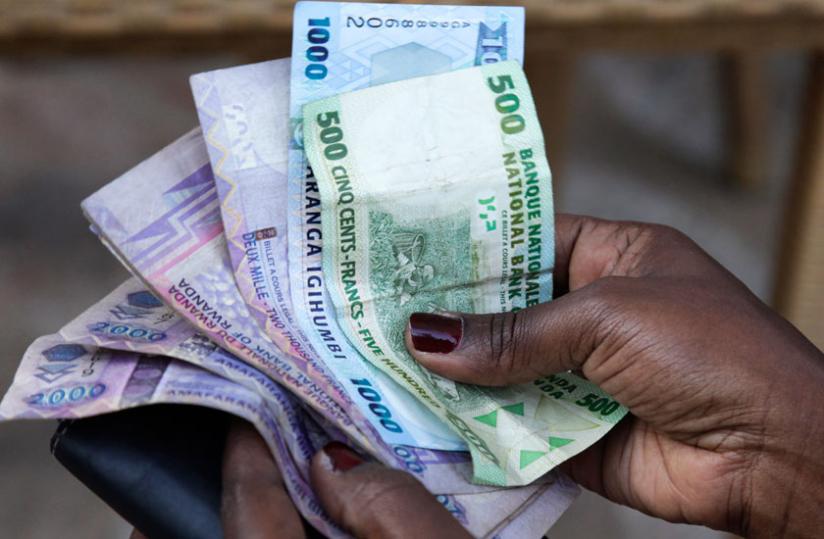The Financial Markets Department of the National Bank of Rwanda wishes to react to the article 'Landlords behind weakening franc' (Sunday Times, September 7, 2014).


Editor,
The Financial Markets Department of the National Bank of Rwanda wishes to react to the article ‘Landlords behind weakening franc’ (Sunday Times, September 7, 2014).
First of all, thank you very much for your efforts to inform economic operators and the public in general about the performance of the Rwandan economy.
Regarding the above article, the Financial Markets Department would like to give you the BNR’s observations as outlined below.
1. Contrary to the gist of your article, transacting in hard currency domestically, though illegal, cannot cause depreciation since there is no outflow involved. Depreciation occurs when outflow of currency outweighs its inflow. As you reported, the depreciation of Rwandan franc against the USD is mainly related to a structural problem in our economy whereby at times the outflows in foreign currencies are high compared to the inflows in foreign currencies. Inflows comprise export revenue, official development assistance and other streams of income. During the first half of 2014 in particular, exports grew by 1.2% in value as you reported. They are likely to perform better during the second part of the year, according to available forecasts. Other components have behaved normally.
However, we agree with you on the fact that transacting in dollars locally can have negative impact on the economy through other channels. That is the reason why Article 35 of law 55/2007 of 30/11/2007 governing the Central Bank of Rwanda provides that only the banknotes and coins issued by the Central Bank of Rwanda are sole legal tender on the territory of the Republic of Rwanda. Those who are in breach with it will have to face penalties in accordance to law enforcement mechanisms in place.
2. There was a misrepresentation in your stating that "While BNR’s figure at close of business that Friday suggested dealers bought the dollar at Rwf684.4 and sold it at Rwf691.2, it was a different story on the market where overwhelming demand for dollars saw the exchange rate shoot up.” BNR like any central bank publishes the official rate, which is always different from the market; the latter having two segments themselves trading differently because one is the retail of the other, namely, commercial banks and forex bureaus. The standard is that any premium charged should not exceed 2 per cent at each level. On Friday, September 5, 2014, the Rwandan franc at forex bureaus was exchanged between 702 and 703 for selling and between 699 and 700 for buying. In commercial banks, the Rwandan franc was exchanged between 697 and 699 for selling and between 691 and 694 for buying. The BNR’s middle rate stood at 684.929050 USD/RWF. For your information, the spread between the official and commercial bank rates averaged at 1.97 per cent between January 1 and September 5, 2014, while the spread between commercial banks and forex bureaus stood at 0.57 per cent on Friday, September 5, 2014. Moreover, any assessment of the market should not base on forex bureaus that represent only a tiny fraction of the market. For the period between January and July 2014, the market depended on forex bureaus by only 6 per cent, while 72 per cent of the expenditures were covered by commercial banks. The balance was paid through BNR (mainly Government and parastatals imports and debt repayments). 3. BNR’s interventions on the market are not intended to bridge the gap between demand and supply. The policy stance is that "BNR is committed to keep the FRW exchange rate fundamentally market-driven depending on the demand and supply of foreign exchanges on the domestic market. BNR will only intervene to smoothen the FRW exchange rate volatility” and so far the policy has been successful as the depreciation on official rate by end August 2014 was 2.14 per cent against 2.66 per cent projected in the macro-framework approved by IMF within the PSI (Policy Support Instrument) while it settled to 2.19 per cent for commercial banks rates against 2.76 per cent anticipated. Projections for end September are 3.06 per cent and 3.16 per cent respectively.
BNR’s interventions are in addition to Government plans to promote exports in partnership with private operators. As we speak, some business companies have signed Memoranda of Understanding with Government with measurable commitments from both sides. The IDEC (Industrial Development and Export Committee) of which BNR is a member will continue to monitor the same for delivery to expectation.
Financial Markets Department,National Bank of Rwanda (BNR)


